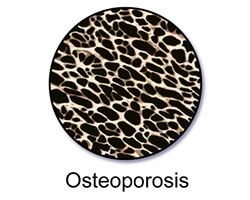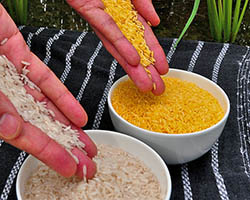Who Needs Vitamins?

Vitamins are in stores, in commercials on TV, and even on highway billboards. In 2017, Americans spent around 35 billion dollars on supplements, which include vitamins, minerals, and vitamin-enriched shakes and drinks. Supplements are a big business! The idea of taking a pill to make sure you get your daily vitamins and minerals sounds great. Who wouldn’t take something that might make you healthier if it’s easy? More than 50% of Americans take vitamins, but do most of us really need to?
Vitamins vs. Food
There has been a lot of research on the importance of vitamins and minerals for basic body functions. We know that vitamins and minerals are absorbed best when we eat them from food. Research has also found that benefits from vitamins in food versus in supplements are different.
Food is a complex mix of hundreds of vitamins, minerals, plant chemicals, and fiber, as well as substances we have yet to discover. They all work together in ways that manufacturers are not able to mimic and in ways we are still learning about. Even “quality” vitamins made from “whole foods” are made from highly processed foods mixed together in a very different way than in nature. There is much more than individual vitamins and minerals present in food.
Do You Need to Take Vitamins?

Scientists find that most people in the US get enough nutrients from a well-balanced diet. However, there are many people all over the world who have vitamin and mineral deficiencies due to a lack of different foods.
For these people, vitamin supplements can be life-saving and may be necessary as a result of their deficiencies. Vitamin and mineral supplements are also important for specific groups of people such as:
- Pregnant women or those planning pregnancy
- Women who are breast feeding
- People diagnosed with a vitamin or mineral deficiency
- People who don’t eat any animal products (vitamin B12 only comes from animal products)
- People who had gastric bypass (weight loss) surgery
- People who had a large portion of intestines removed (short bowel syndrome
- People with genetic abnormalities that prevent metabolism of nutrients
- People with food allergies or intolerances toward an entire food group
- People with poor food intake due to lack of appetite, taste changes, or mouth sores
- People with medical conditions where vitamin absorption is a problem
Note that in all the above cases, these issues should be verified by a medical doctor.
Enriched Foods

Though deficiencies may be a problem in some countries, it’s important to know that in many countries, certain foods have added vitamins and minerals. Foods such as cereals, whole grains, and flours (and even some drinks) may have vitamins and minerals added. Some foods have undergone genetic modification so they produce much-needed vitamins.
In America, less than 10% of the population is reported to have a vitamin deficiency that puts health at risk. However, it’s common for people to think, “if small amounts of vitamins keep us alive, then more must be better for us.” But if we eat a balanced diet and take supplements, we can get too many vitamins. This can prevent the absorption of other vitamins or minerals. For example, too much copper can cause a zinc deficiency. If you don’t have access to a balanced diet, a vitamin supplement may be helpful. But a balanced diet is the best way to get the vitamins you need.
Taking additional vitamins when you don’t need them could be bad for your health. Big studies have been published that show (across many experiments) that taking a lot of certain vitamins can be harmful. Risks of some cancers and heart attacks increased in groups who took high-dose supplements versus those who did not. The studies show healthy adults and children do not benefit from taking dietary supplements if they don’t need them. Unfortunately, more is not always better and can actually be toxic to humans in some cases.

If you are taking any medicines, always consult with your pharmacist or doctor as vitamins may interfere with some medications. Some vitamins can decrease the effect of your medicine or make it work too well. For example, if you are taking a pill to make your blood thinner, you may not want to take vitamin E because it can increase this effect. This can increase the risk for stroke or internal bleeding.
It’s best to speak with your doctor or a dietitian about your diet and past medical history, and only take supplements if recommended. If you are eating a well-balanced diet, you may not need a vitamin supplement. Focus on eating foods from each food group, especially fruits and vegetables. Taking vitamin supplements is certainly a personal choice, but it’s good to have science-based information to help you make personal decisions.
Additional images via Wikimedia Commons. Fruits and veggies via Michael Stern.
Read more about: Vitamins: Vital or Not?
Bibliographic details:
- Article: Who Needs Vitamins?
- Author(s): Dr. Biology
- Publisher: Arizona State University School of Life Sciences Ask A Biologist
- Site name: ASU - Ask A Biologist
- Date published:
- Date accessed:
- Link: https://askabiologist.asu.edu/who-needs-vitamins
APA Style
Dr. Biology. (). Who Needs Vitamins?. ASU - Ask A Biologist. Retrieved from https://askabiologist.asu.edu/who-needs-vitamins
Chicago Manual of Style
Dr. Biology. "Who Needs Vitamins?". ASU - Ask A Biologist. . https://askabiologist.asu.edu/who-needs-vitamins
Dr. Biology. "Who Needs Vitamins?". ASU - Ask A Biologist. . ASU - Ask A Biologist, Web. https://askabiologist.asu.edu/who-needs-vitamins
MLA 2017 Style

Be Part of
Ask A Biologist
By volunteering, or simply sending us feedback on the site. Scientists, teachers, writers, illustrators, and translators are all important to the program. If you are interested in helping with the website we have a Volunteers page to get the process started.

